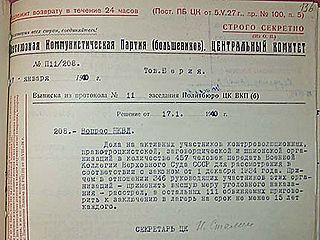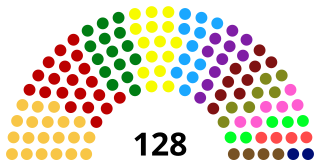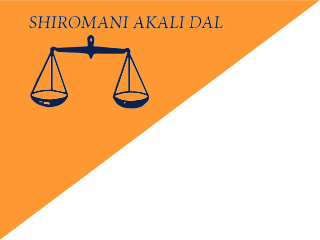
An election is a formal group decision-making process by which a population chooses an individual or multiple individuals to hold public office.

A government is the system or group of people governing an organized community, generally a state.

The politics of North Korea takes place within the framework of the official state philosophy, Kimilsungism-Kimjongilism. Juche, which is a part of Kimilsungism-Kimjongilism, is the belief that only through self-reliance and a strong independent state, can true socialism be achieved.

The federal government of Nigeria is composed of three distinct branches: the legislative, the executive, and the judicial, whose powers are vested and bestowed upon them by the Constitution of the Federal Republic of Nigeria, the National Assembly, the president, and lastly the federal courts, which includes the Supreme Court which is regarded as the highest court in Nigeria. One of the major functions of the constitution is that it provides for separation and balance of powers among the three branches and aims to prevent the repetition of past mistakes made by the government. Other functions of the constitution include a division of power between the federal government and the states, and protection of various individual liberties of the nation's citizens.

Proportional representation (PR) refers to any type of electoral system under which subgroups of an electorate are reflected proportionately in the elected body. The concept applies mainly to political divisions among voters. The essence of such systems is that all votes cast – or almost all votes cast – contribute to the result and are effectively used to help elect someone – not just a bare plurality or (exclusively) the majority – and that the system produces mixed, balanced representation reflecting how votes are cast.

A politburo or political bureau is the highest political organ of the central committee in communist parties. It is present in most former and existing communist states.
In political science, a political system means the type of political organization that can be recognized, observed or otherwise declared by a state.

The Telugu Desam Party is an Indian regionalist and Telugu nationalist political party with influence in the states of Andhra Pradesh and Telangana. It was founded by the former chief minister of Andhra Pradesh N. T. Rama Rao (N.T.R.) on 29 March 1982 and has focused on supporting Telugu speakers. The party has won a five-time majority in the Andhra Pradesh Legislative Assembly and has emerged as the most successful political outfit in the state's history. It is currently the ruling party in the Andhra Pradesh Legislative Assembly.

The Social Democratic Alliance is a social-democratic political party in Iceland. The party is positioned on the centre-left of the political spectrum and their leader is Kristrún Frostadóttir.

Zveno, Politicheski krag "Zveno", officially Political Circle "Zveno" was a Bulgarian political organization, founded in 1930 by Bulgarian politicians, intellectuals and Bulgarian Army officers. It was associated with a newspaper of that name.

The president of Tunisia, officially the president of the Republic of Tunisia, is the head of state since the creation of the position on 25 July 1957. In this capacity, he exercises executive power with the assistance of a government headed by the Prime Minister in a presidential system. According to Article 87 of the 2022 Constitution, he is the commander-in-chief of the Tunisian Armed Forces. Under the Constitution, the president is elected by direct universal suffrage for a term of five years, renewable once.
Direct election is a system of choosing political officeholders in which the voters directly cast ballots for the persons or political party that they desire to see elected. The method by which the winner or winners of a direct election are chosen depends upon the electoral system used. The most commonly used systems are the plurality system and the two-round system for single-winner elections, such as a presidential election, and proportional representation for the election of a legislature or executive.

The politics of Europe deals with the continually evolving politics within the continent of Europe. It is a topic far more detailed than other continents due to a number of factors including the long history of nation states in the region as well as the modern day trend towards increased political unity amongst the European states.

The Lebanese Parliament is the national parliament of the Republic of Lebanon. There are 128 members elected to a four-year term in multi-member constituencies, apportioned among Lebanon's diverse Christian and Muslim denominations but with half of the seats reserved for Christians and half reserved to Muslims per Constitutional Article 24. Lebanon has universal adult suffrage. Its major functions are to elect the President of the republic, to approve the government, and to approve laws and expenditure.
The Japan New Party was a Japanese political party that existed briefly from 1992 to 1994.
Plurality block voting, also known as plurality-at-large voting, bloc vote or block voting (BV) is a non-proportional voting system for electing representatives in multi-winner elections. Each voter may cast as many votes as the number of seats to be filled. The usual result when the candidates divide into parties is that the most popular party in the district sees its full slate of candidates elected in a seemingly landslide victory.

The Shiromani Akali Dal (SAD) is a centre-right Sikh-centric state political party in Punjab, India. The party is the second-oldest in India, after Congress, being founded in 1920. Although there are many parties with the description Akali Dal, the party that is recognized as "Shiromani Akali Dal" by the Election Commission of India is the one led by Sukhbir Singh Badal. The party has a moderate Punjabi agenda. On 26 September 2020, they left the NDA over the farm bills.












